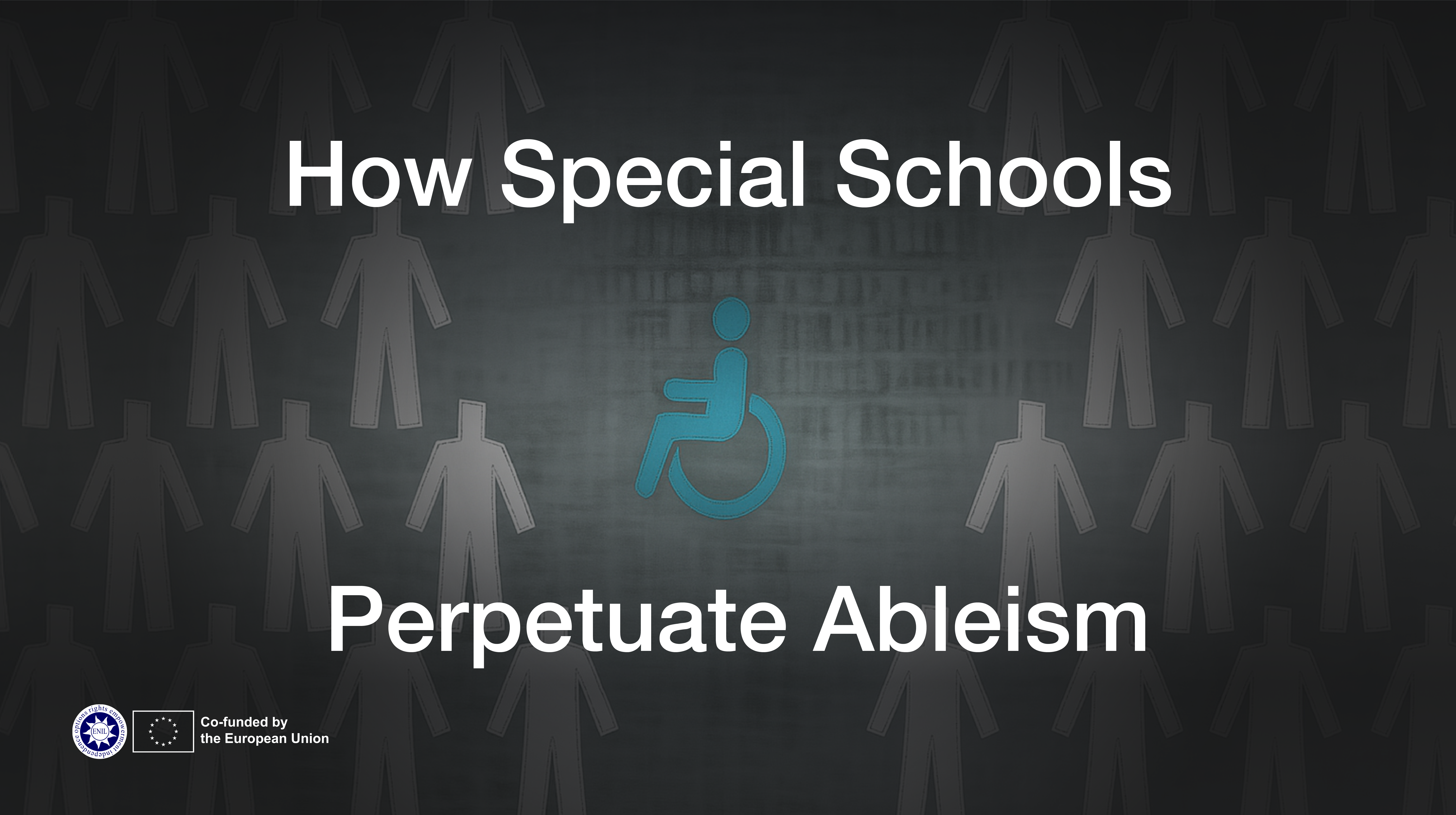This article was written by our member from Greece, Maria, to raise awareness about the discriminatory treatment against disabled people by companies producing household appliances. In the article, she describes her experiences with purchasing a dehumidifier.
Have you ever come across the following statement (or a similar one)?
“This appliance is not intended for use by people with reduced physical, sensory or mental capabilities, children or those with lack of experience and knowledge, unless they have been given supervision or instruction concerning use of the appliance by a person responsible for their safety.”
Do you find anything problematic in it? If you don’t, you can just ignore this article. Because I do actually find it pretty problematic. However, before explaining to you why I do so, let me tell you the story of how and where I firstly discovered such (slightly worse) statement.
One day -not really long ago-, I decided to buy a dehumidifier. I haven’t got one and you know, the trend says you need one nowadays, so I decided to give it a go. As I had no previous experience with the usage of dehumidifiers, I went out of my usual route, and decided to have a quick look at the manual (user’s guide) to familiarize myself with the basics, instead of throwing it immediately into the garbage can, . And, as some of you may know, the first thing in there are the safety and warning instructions. At this point, feel free to “pause the video” check one such manual (in case you have one available) and find this section.
In this dehumidifier guide therefore, the related statement went like this:
“No children under the age of 8 should be permitted to operate this electric device. Be certain, that children, handicapped people, or people with the lack of knowledge and experience, must be supervised, depending the situation, by persons responsible for their well-being and do not undertake procedures such as the cleaning or the maintenance of this device.”
When I first read that, I got infuriated! I mean, come on! We live in the 2020s! Our world, our societies have moved on, right? We even get complaints about any terminology misspelling on the TV, concerning disabled people, that can be regarded as discriminatory. So how I come across such an insulting statement, on a mass selling product’s manual, and until then, had never heard any complaint about similar experiences?
I mean, I actually gave my money to buy a product, to be told what? That I am not allowed to use it unless supervised? I paid to get insulted-discriminated? I should do what now? Return the product? Throw it away? Call over my mother or father to supervise me, as I turn on the appliance? I mean, this is at least derogatory, right?
And of course, you can say that it is just a typical statement, so that the company avoids any later accusations in case of an accident. You can also tell me that the company is obligated to include such a statement, because the law says so or someone can get hurt or whatever. However, the thing is that I do not know the related legislation, I don’t have to, and I just don’t really care! I am a consumer. Disabled or not, I am a consumer, who freely buys anything she/he deems that have value for her/him. And I pay the price given on the market.
But if I knew beforehand, that a product offers me such an “aftersale service”, I probably would not want to pay that price. So, is it not only normal for the manufacturer to make clear to the customers that such a “service” of bold discrimination is included in that price? Should not it be included, on the product’s description, that for example, disabled users should not use the product unless supervised? And finally, what “people with reduced physical, sensory or mental capabilities” even means? At least, they should use the term “disabled”. Why they are not? They think that it can be perceived as discriminatory? It is at least ridiculous!
So why then, should I pay to be insulted? It is not the case that someone cannot use the product unless she/he is aware of the dangers its use can entail? So why special statement about the people with “reduced physical, sensory or mental capabilities” or the “handicapped” should be included? Why not just stating that anyone should pay attention to such dangers? Why should a company or a law assume that I, as a disabled person, cannot live independently? Why do they assume that as a disabled I need protection or supervision? And finally, why does no one complain about it?
Naturally, I got enraged with the company, but with the disabled community as well. You can hear disabled people complaining about so many things, fighting for their rights, for IL, for inclusion etc, but no one ever mentions this issue. Why? I am sure that many of you have heard, experienced or stated publicly, for example, when asked about discrimination against you as disabled, the case of being given coins in the street from people assuming that you are beggars. Although, I am pretty sure as well that the issue I am discussing here has not been included in such stories. This is however, something we have to face on an everyday basis. So why is no one bothered by it?
When I first read that manual, I contacted the company asking them how they could include such a discriminatory, outdated statement. I explained to them that disabled people often live independently, maintain their own households etc. They, as expected, apologized and assured me that they would change the statement and replace the manual. When, after some days, they sent me the updated version (as I had asked them to do), I was astonished. The only thing they had changed was the word “handicapped (in the Greek section it was “people with special needs”) to “people with disabilities”! I simply did not have anything more to say to them.
I decided then, that I would just never buy again that company’s products. After the above mentioned incident, I started to read the manuals of every appliance I came across ; they all state the same (with minor variations) things (at least in Greece, where I live). So then, every time, another company is included in my “black list”. And then another, and another, and so on. If I wanted to keep my pride, I should just go to live in a cave!
I know that some will argue that this is a minor issue, but it is not. Half of the things I use during my everyday life, according to their manufacturers, are not to be used by me, without being first given permission or instructions to do so. I am, in fact, paying to get discriminated. And now I am well aware of it.
Note: It would be interesting to see what it is like in other countries – languages. If you have related experiences or knowledge, please let us know in the comments.


